Senate committee approves 4 percent teacher raise for Alabama teachers, education budget

An Alabama Senate committee has approved a 4 percent pay raise for most public school teachers, administrators and employees. The Senate Finance and Taxation Education Trust Fund Committee approved a $6.327 billion Education Trust Fund budget, a 5 percent increase over this year, which funds pay raises for teachers and provides additional money to hire new educators and fund transportation. The House unanimously approved the budget early last month. The budget provides for a wide-array of increases for state education, including $14.5 million to Alabama’s top-ranking Pre-K program — a bump from the House-approved $14 million. Further, the budget will fully fund the Public Education Employees Health Insurance Plan (PEEHIP) and bump the funding for teacher supplies from $373.79 to $405.05 per unit, and technology from $63.79 per unit to $169.34 per unit. The Committee also approved a proposal that dictates teachers and employees making less than $75,000 a year would see a four percent pay raise, while those above would see a two percent raise, making this the first take-home pay increase in years for Alabama public school teachers. The committee adopted an amendment offered by Senate budget chairman Arthur Orr (R-Decatur), that included principals and assistant principals in the pay raise. “Principals are the backbone of the schools, and make the trains run on time and we need to attract good leaders to our individual schools,” Orr said. The budget now moves to the full Alabama Senate, where it is expected to be considered as early as Wednesday.
Neutral in presidential race, Barack Obama digs in for other Dems
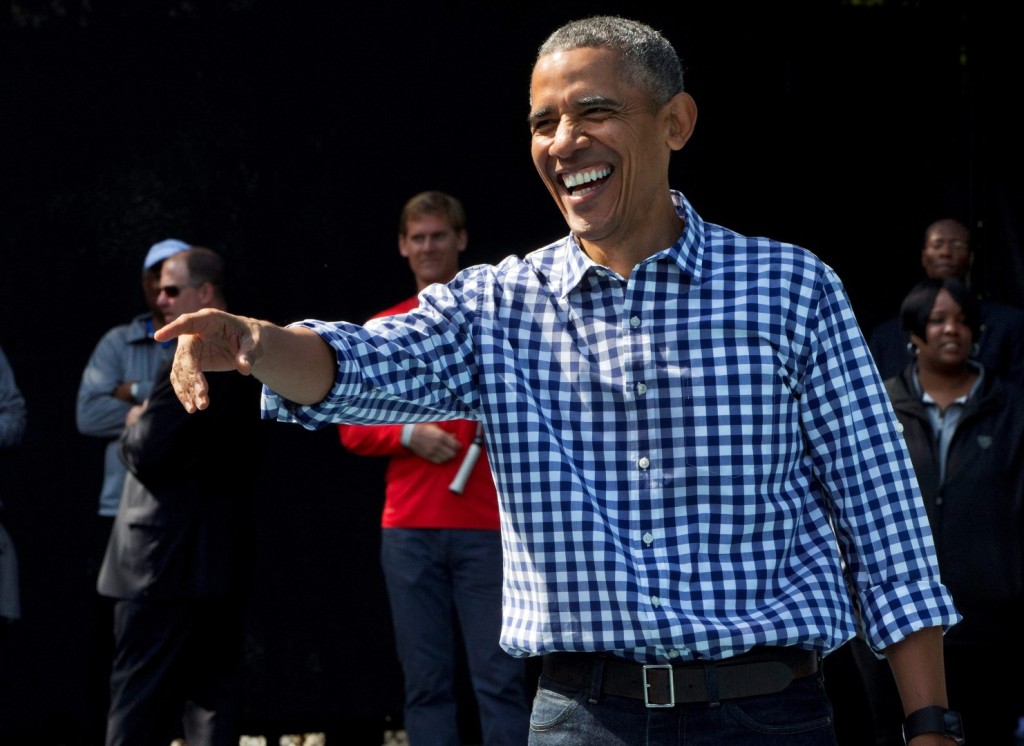
In a rural stretch of Kentucky, voters picked up the phone in March to hear President Barack Obama on the line, urging them to vote for a little-known Democrat named Jeff Taylor. That an obscure special election for a Kentucky House seat had caught the president’s attention seemed odd. Yet Taylor won, joining two other victorious Democrats to deny Republicans the chance to take over the last Democratic-run legislative chamber in the South. Though he’s staying neutral in the Democratic presidential race, Obama is wading deep into Democratic primaries for Congress, state legislature and even mayoral races, cherry-picking candidates he sees as stronger while preparing to campaign in person for Democrats in the fall. Democratic officials said Obama and Vice President Joe Biden are in high demand this year —a sharp reversal from just two years ago, when Obama was politically toxic. Most Democratic candidates in 2014 practically begged Obama and his sagging poll numbers to stay away, relegating the president to a few Democrat-friendly states like Michigan. This year, upbeat economic news and rising approval ratings have increased his value to Democrats in the last election cycle before he leaves office. “You’re going to see ever-increasing requests for Obama and Biden to campaign for candidates this year,” said Amy Dacey, the CEO of the Democratic National Committee. So far this year, Obama has endorsed candidates in nine races, in addition to four he endorsed last year. He’s backed former Gov. Ted Strickland for Senate in Ohio over Cincinnati councilman P.G. Sittenfeld, and he came to the aid of Rep. Debbie Wasserman Schultz, who faces a surprisingly strong primary challenge despite being the chairwoman of the Democratic Party. Obama and Biden also endorsed Katie McGinty in Pennsylvania, who faces an uphill battle to defeat former Rep. Joe Sestak in the Democratic primary for Senate. The Democratic Senatorial Campaign Committee, which works to elect Senate Democrats, touted the endorsements in a television ad released Tuesday as part of a $1.1 million campaign. In Florida, Obama sided with Rep. Patrick Murphy over Rep. Alan Grayson, a favorite of the liberal wing of the Democratic Party who is under scrutiny by the House Ethics Committee. The two Democrats are running for outgoing GOP Sen. Marco Rubio‘s seat. All the Senate candidates Obama has endorsed have also been endorsed by the DSCC, a wing of the Democratic Party. “It’s mirroring what’s going on with Hillary Clinton and Bernie Sanders, where the establishment Democrats are backing different candidates than their liberal, progressive base wants,” said Andrea Bozek, communications director for the National Republican Senatorial Committee. Bozek called it a sign of desperation that Democrats felt they needed to bring in Obama to secure their preferred candidates. Even Democrats denied Obama’s endorsement are reluctant to complain about favoritism, wary of turning off loyal Obama supporters. Tim Canova, the law school professor challenging Wasserman Schultz, said the attention actually helped because it “really put us on the map.” “It seemed like a sign that Wasserman Schultz is worried about our campaign, that she would have gone running to the White House for an endorsement,” Canova said. Two years ago, Democrats fought their toughest Senate races in conservative-leaning states where Obama has always been deeply unpopular. The map shifted this year to states Obama won twice, including New Hampshire, Nevada and Colorado — also critical states for winning the White House. “The president right now is the most popular elected official in the country among Democrats and independents,” said David Simas, the White House political director. “When you start looking at what these battleground states will be at the presidential, Senate and House level, the map is pretty wide open for the president to engage and be helpful.” Though Obama won’t be on November’s ballot, the stakes for his legacy are just as high. A return of the White House to GOP control would augur the likely rollback of many of his policies on health care, immigration and the environment. Yet Democrats say the chaos in the GOP presidential race has created an opening to take back the Senate and maybe even the House, preserving Obama’s policies for years to come. Obama’s involvement in lower-tier races stands in contrast to his lower profile in the presidential race, where Obama is avoiding publicly choosing sides between Clinton and Sanders. White House officials said Obama will campaign full-force for the eventual nominee, but in the meantime his main role has been to attack Donald Trump. Biden, huddling with House Democratic candidates over the weekend in New Mexico, told them having Trump or Texas Sen. Ted Cruz on the ballot would benefit Democrats in lower-tier races, said a Democratic aide who requested anonymity to discuss the private meeting. Biden has already campaigned for Senate candidates in Florida, Ohio, Pennsylvania and Nevada. Republished with permission of the Associated Press.
Business Council of Alabama announces 2016 manufacturers of the year

The Business Council of Alabama and the Alabama Technology Network named their picks for 2016 award winning manufacturers in the state during an annual luncheon Tuesday, attended by business and political leaders. The gathering’s keynote speech was given by Carroll Thomas, director of Manufacturing Extension Partnership, the public-private partnership seeking to strengthen manufacturing in the United States. “Now in its 17th year, the Business Council of Alabama and the Alabama Technology Network are honored to salute Alabama’s best manufacturers for their valuable participation in not only the state’s economy but also the economies of their employees and the suppliers who do business with them,” said BCA president and CEO William J. Canary. “Since 2000 the Manufacturer of the Year Awards has been a premier event for the BCA, the Alabama Technology Network, the Chamber of Commerce Association of Alabama, and the National Association of Manufacturers. The BCA is proud to be the exclusive affiliate in Alabama to the NAM and the U.S. Chamber of Commerce.” Awards were given out in the categories of large (400 or more employees), medium (100-399 employees), and small (1-99 employees) manufacturers. Austal USA, the Mobile-based shipbuilders won large manufacturer of the year. Austal employs more than 4,000 to build and deliver twenty ships to the U.S. Navy, with four more currently in production.“Austal is involved in the community with financial and volunteer support,” said the BCA in a press release announcing the winners. “It participates in American Cancer Society and American Heart Association events, the annual Marine Corps Toys for Tots program, local schools, the United Way, chambers of commerce, professional baseball, and museums.” Winning medium manufacturer of the year was Revere Controls, based in Hoover. Employing 185 Alabamians to build custom-designed control panels“In more than 35 years since its founding, Revere Controls has demonstrated growth, financial performance, and a commitment to quality, safety, responsiveness, and doing what’s right for both its customers and employees,” said the BCA. Plasmine Technology based in Bay Minette won small manufacturer of the year for its work making and selling rosin to the paper industry, which has historically been a significant part of Alabama’s economy. “The private company’s focused organization competes against larger companies by emphasizing leadership, communication, data tracking and control, employee involvement, and accountability,” said the BCA. “It engages outside resources such as the Alabama Technology Network, parent-company research, membership associations, and vendors for knowledge, training, and ideas.”This is Plasmine Technology’s second time to win the honor, their first award being earned in 2008.
Bentley Administration announces creation of Children’s Cabinet
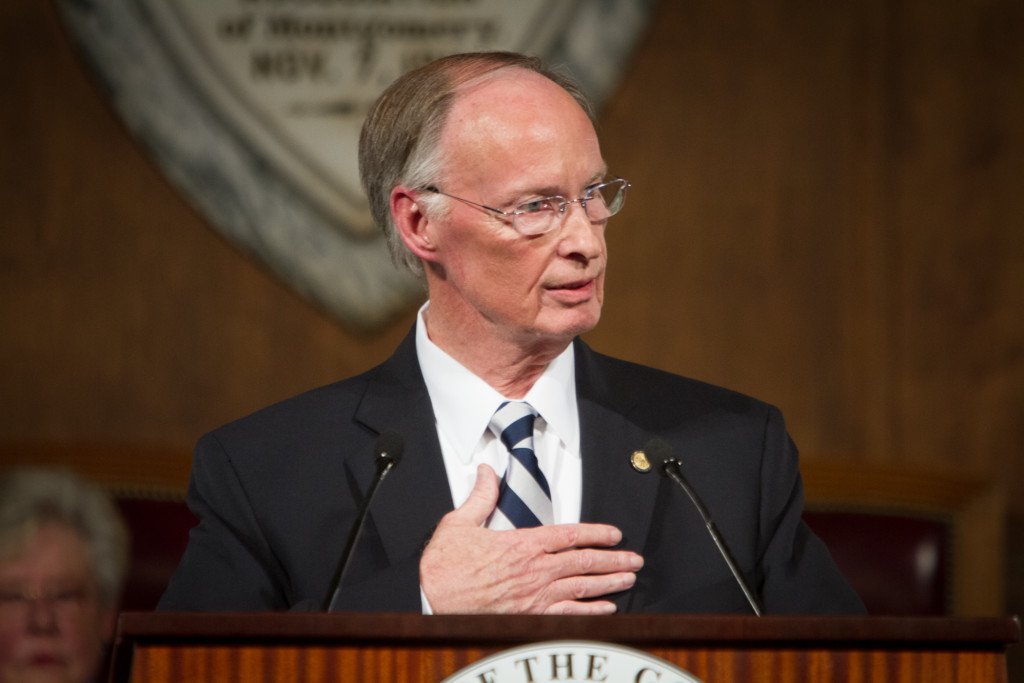
Alabama Governor Robert Bentley announced Tuesday afternoon the creation of the Alabama Children’s Cabinet. The Cabinet will include members of existing state agencies who will work together to “maximize efficiency in the use of state resources, reduce duplication of services and create a greater return of state tax dollars,” according to a press release from the governor’s office announcing the new body. “Alabama’s children are our future, and we must ensure that their needs are being met just as we do with adults,” said Bentley at the announcement of the Cabinet’s creation. “Whether it is education, health care, nutrition programs, or other needs, children need someone to advocate for what is best for them. We have put together a great group of individuals, already working hard on children’s issues, that has the knowledge and experience necessary to improve the lives of the children of Alabama. The Children’s Cabinet will be an important group dedicated to Alabama’s children” This group will work to develop measures of accountability to improve effectiveness in achieving positive outcomes for children. — Gov. Robert Bentley (@GovernorBentley) April 12, 2016 We’ve put together a great group of individuals that have the knowledge & experience necessary to improve the lives of Alabama children. — Gov. Robert Bentley (@GovernorBentley) April 12, 2016 The Cabinet will consist of the director, or an appointed delegate from the State Department of Education, Alabama Department of Human Resources, Alabama Medicaid Agency, Alabama Department of Public Health, Alabama Department of Mental Health, Alabama Department of Early Childhood Education, Alabama Department of Youth Services, Alabama Department of Rehabilitation Services, Alabama Department of Child Abuse and Neglect Prevention, and the Governor’s Office of Minority Affairs. The Cabinet, created by Executive Order 17, is created effective immediately, and must meet monthly, and is given authority to develop its own rules. According to the governor’s office, the members of the Children’s Cabinet will receive no additional compensation for the position.
Johnny Kampis: Could scandal derail Robert Bentley’s Alabama broadband plans?

The scene has been repeated ad nauseam over the past two weeks: Gov. Robert Bentley makes a scheduled stop to discuss a new industry or an economic development plan and, instead of questions about the issue at hand, he is peppered with queries about his alleged affair with a former staffer. Take an exchange in Franklin County two weeks ago. Bentley visited to tout his plan to use federal tax dollars (with a 10 percent state match) to build a broadband network across the state, primarily to aid rural areas that have limited or no broadband access.The firestorm created by the controversy has raised questions about Bentley’s ability to lead, throwing his entire agenda into question. Bentley tried to keep a brief media exchange that followed his meeting with Franklin County leaders focused on broadband, to little avail. After saying he had no plans to resign, Bentley asked, “Who else has a question about broadband?” In response, he got, “Governor, this isn’t a question related to broadband, but …” To which Bentley tersely replied, “Let’s take broadband.” The conversation meandered more toward scandal than broadband as the questions continued, as the video below shows: Bill Stewart, professor emeritus of political science at the University of Alabama, told Watchdog.org on Monday that Bentley has gotten pushback from lawmakers in the past — see the governor’s tax increase plan in 2015, for example — but this scandal has taken the rhetoric to a new level. “I think that further weakens his position, and that’s bad for the citizens of Alabama because he can’t provide the leadership we need in order for our state to make progress,” Stewart said. Last week, both chambers of the Alabama Legislature — the House by a 71-24 vote, and the Senate by a 22-10 vote — chose to override Bentley’s budget veto. The governor argued the budget should include another $85 million for Medicaid. Read more. • • • Johnny Kampis is a content editor at Watchdog.org, and is helping to start the organization’s Alabama Watchdog bureau in his home state. Johnny previously worked in the newspaper industry and as a freelance writer, and has been published in The New York Times, Time.com, FoxNews.com and Atlanta Journal-Constitution.
Alabama women earn 73 cents for every dollar paid to men, study finds

Alabama’s gender wage gap is one of the worst in the nation with women earning, on average, 73 cents for every dollar paid to men. According to a new report from the National Partnership for Women & Families, a nonprofit advocacy group promoting fairness in the workplace, this amounts to an annual wage gap of $12,109, which ranks Alabama as the sixth largest gap in the country. But Alabama is not the only state with a wage gap. In fact, every state and 98 percent of the country’s congressional districts have one — Louisiana’s 35-cent gap is the largest, while New York’s is the smallest, at 13 cents. In the nation’s capital, Washington D.C., the pay gap is just 10 cents. “This analysis is a sobering reminder of the serious harm the wage gap causes women and families all across the country,” said Debra L. Ness, president of the National Partnership. “At a time when women’s wages are so critical to the economic well-being of families, the country is counting on lawmakers to work together to advance the fair and family friendly workplace policies that would promote equal pay. There is no time to waste.” Alabama’s gender wage gap spans the state — the report shows that a gap persists in all seven of Alabama’s congressional districts. Based on the analysis, if the gap between women’s and men’s wages in Alabama were eliminated, each woman who holds a full-time, year-round job in the state could afford to buy food for 1.9 more years, pay for mortgage and utilities for 11 more months, or pay rent for nearly 17 more months. Basic necessities like these would be particularly important for the 39 percent of Alabama’s woman-headed households currently living below the poverty level. Ness continued: “Some state lawmakers have taken steps to address the issue by passing legislation to combat discriminatory pay practices and provide other workplace supports. It is past time for federal lawmakers to do the same. We need Congress to pass the Paycheck Fairness Act, which is a common sense proposal that has languished for much too long.”
Most voters say ‘meh’ — at best — on the presidential field
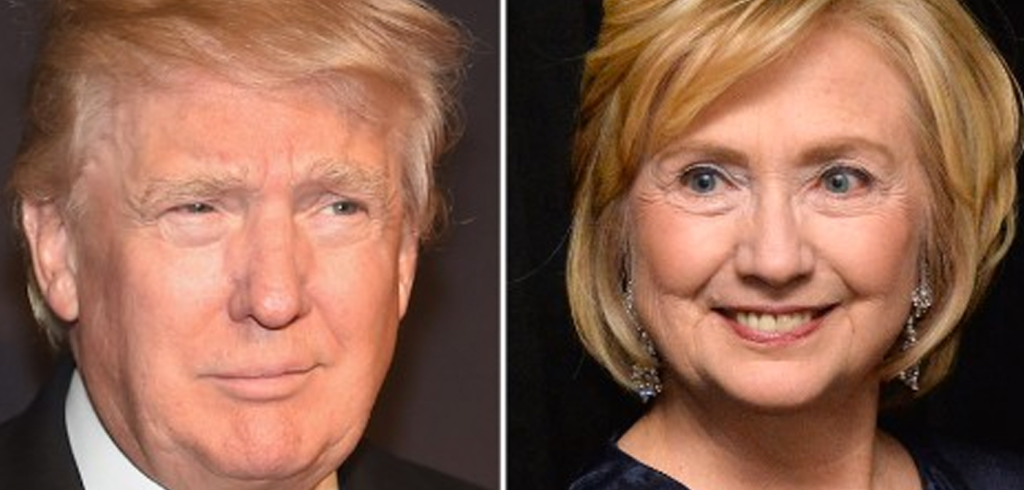
Most American voters say “meh” – at best – about the 2016 field of presidential candidates in both parties. That’s according to a new Associated Press-GfK poll, which shows that a majority of Americans believe none of the remaining candidates for president represents their opinions at least somewhat well. At least half of Americans say they would be disappointed or even angry if either of the front-runners – Donald Trump for the Republicans or Hillary Clinton for the Democrats – are nominated, the survey shows. And a quarter said they would be disappointed or angry if both win nominations. Still another quarter would feel at best neutral if both are nominated. Among all registered voters, 63 percent say they wouldn’t consider voting for Trump and half say the same about Clinton. About one-fifth of those surveyed say they’d either probably or definitely vote for a third-party candidate if Trump and Clinton are the nominees. Roland Bauer, 64, a retiree from Winter Springs, Fla., plans not to vote if Clinton and Trump are nominated. “I don’t trust politicians,” he says. “Everybody is on the take.” Bruce Bertsch, a libertarian and retired human resources director from San Diego, says the public’s lukewarm reaction to the major-party hopefuls doesn’t come from disinterest or apathy – quite the opposite. Here’s how his friends and family see the candidates: “Hillary Clinton is a liar. Donald Trump is an idiot. And Bernie (Sanders)? He’s an old fool,” Bertsch, 78, said in a telephone interview Monday. To Bertsch, the Republican and Democratic competitors look like this: “The Democrats want to spend my money. The Republicans want to tell me how to live my life – and then spend my money.” The AP-GfK poll suggests the general election, after the parties name nominees, will be less about emotional appeals and inspiration and more about getting actual voters to cast votes before the end of Election Day. It’s what insiders call the “ground game.” And much of it is played over the airwaves at enormous expense. “In the general election, it’s an air war,” said former Republican strategist Rich Galen, author of a political blog. “The goal is to get not only your people out to vote, but to get these people who are maybe sitting on the sidelines excited enough to come out and join the game.” Even within their own parties, neither Trump nor Clinton generates much enthusiasm. Only 26 percent of Democratic voters say they’d be excited about Clinton being their nominee, and 27 percent say they’d be satisfied. Another 23 percent would feel neutral, 19 percent would be disappointed and 5 percent would be angry, the poll found. Trump fares even worse among Republican voters, with 19 percent saying they’d be enthusiastic, 19 percent satisfied, 20 percent neutral, 25 percent disappointed and 16 percent angry. Less than half of Americans say any of the remaining candidates, including Sanders, Ted Cruz or John Kasich, comes close to representing their opinions on the issues. And in a year dominated by Trump-generated theatrics and his so-far scant policy details, substance matters, most voters say. Nearly 9 in 10 Americans call a candidate’s positions on the issues extremely or very important to them. Among all the remaining candidates, only Sanders, Clinton’s Democratic rival, generates significantly more positive than negative ratings from Americans, with 48 percent saying they have a favorable opinion of him and 39 percent unfavorable. He’s also the only candidate described by a majority of Americans as at least somewhat likable, civil, honest and compassionate. Nearly 7 in 10 Americans have an unfavorable view of Trump, nearly 6-in-10 have an unfavorable view of Cruz and a majority – 55 percent – have an unfavorable view of Clinton, according to the poll. Americans are fairly evenly divided on Kasich, with 34 percent expressing a favorable view and 31 percent an unfavorable one. Another 34 percent still don’t know enough about him to say. The AP-GfK Poll of 1,076 adults used a sample drawn from GfK’s probability-based KnowledgePanel, which is designed to be representative of the U.S. population. The margin of sampling error for all respondents is plus or minus 3.3 percentage points. Respondents were first selected randomly using telephone or mail survey methods and later interviewed online. People selected for KnowledgePanel who didn’t otherwise have access to the Internet were provided access at no cost to them. Republished with permission of the Associated Press.
Jeff Sessions elected chairman of ALGOP national convention delegation
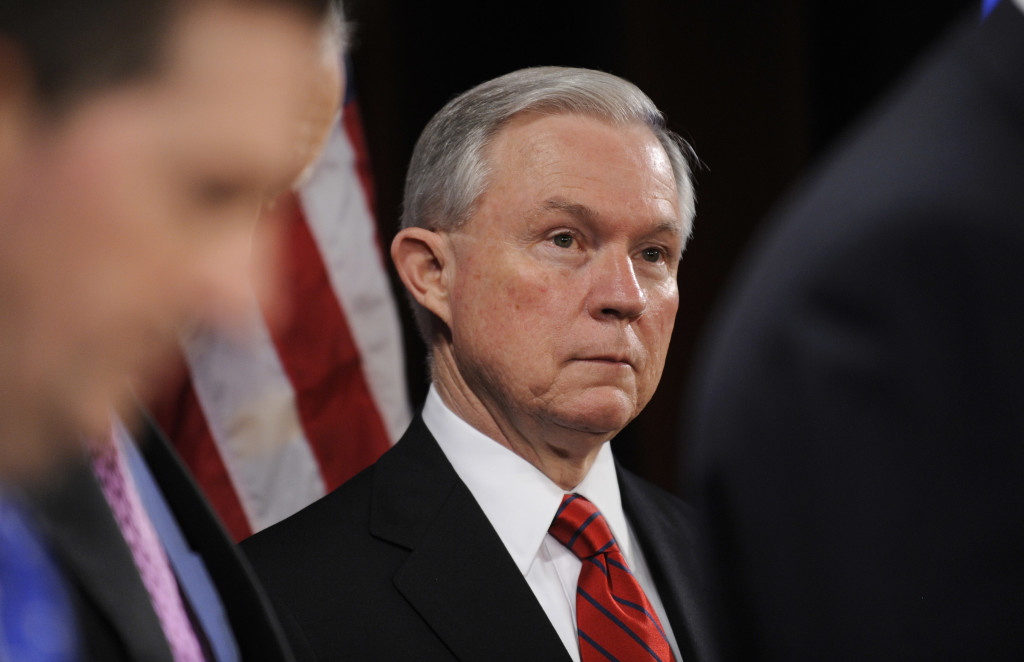
When delegates elected in Alabama’s March 1st primary travel to Cleveland, Ohio, for the Republican National Convention in July they will be led by Alabama Senator Jeff Sessions, the highest-profile elected official to have endorsed frontrunner Donald Trump. Sessions was elected Saturday at an ALGOP delegation meeting as chair of the group, which consists of 50 pledged delegates, and 47 alternative delegates, who will be elected in May. Of Alabama’s delegates, 36 are pledged to Trump and 14 to Cruz. Chairman of Alabama’s delegation isn’t the only position Sessions has earned since announcing his open support of Trump in February. Last month the billionaire named Sessions chairman of his national security advisory committee. “We need to understand the limits of our ability to intervene successfully in other nations,” said Sessions when the appointment was announced. “It is time for a healthy dose of foreign policy realism. In the Middle East, this means forming partnerships based on shared interests, not merely overthrowing regimes in the dangerous attempt to plant democracies.” But having at the helm of the delegation one of most influential and vocal Trump campaign supporters could guard against any strategies to woo Alabama’s delegates to another candidate, should the convention be contested. In addition to Sessions’ election as chair, Trump delegates Representative Ed Henry (R-Hartselle) and Laura Payne were elected to represent Alabama on the Rules Committee, which will decide the rules under which the convention proceeds. These two positions, held in Alabama by staunch Trump supporters, could end up being some of the most important on the delegation. Traveling to Cleveland a few days before the convention, the members of the Rules Committee will decide what threshold a candidate must meet, and under what conditions, to become the party’s nominee. In what is shaping up to be a hotly contested convention, the Rules Committee will have even more influence than in previous years.
Franklin Graham to hold prayer rally on Alabama Capitol steps Thursday
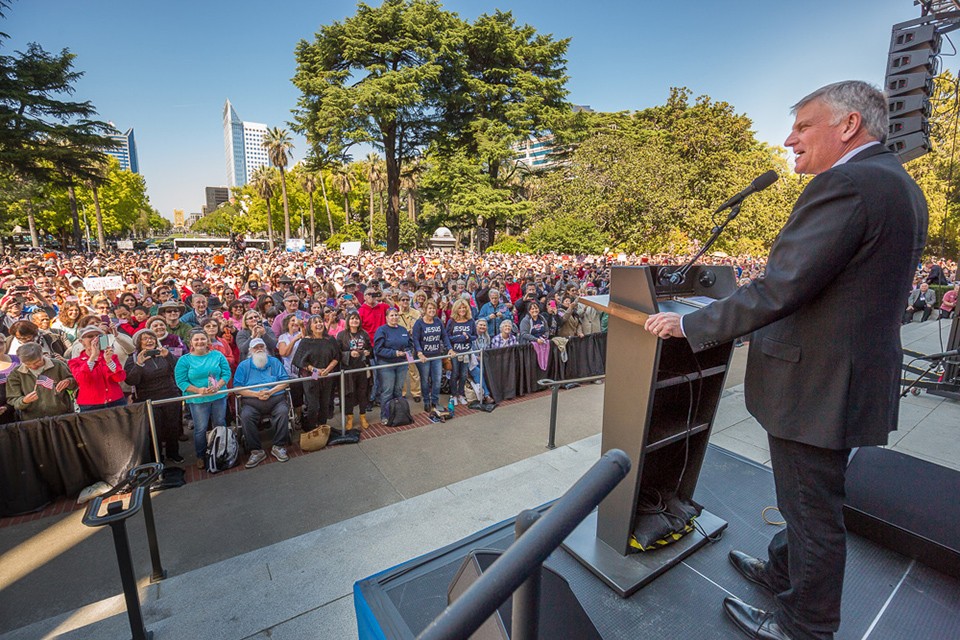
Franklin Graham, the son of world-renowned evangelist Billy Graham, will pray on the Alabama State Capitol steps at noon Thursday. Graham, who is president and CEO of the Billy Graham Evangelistic Association (BGEA), will visit Montgomery as part of his nationwide “Decision America Tour 2016” — a national outreach effort of the BGEA to visit the state capitals of all 50 states this year, spread the Gospel of Jesus Christ and encourage grass-roots involvement in the political process in communities across the country. “The moral and political walls of our nation are crumbling,” Graham said earlier this year. “Our nation is in trouble. And there’s not one political party that can fix it.” Thursday’s stop will be Graham’s sixteenth stop on the 50 state tour that began Jan. 5 and is scheduled to wrap-up shortly before Election Day in his home state of North Carolina. Before heading to Montgomery, Graham will visit Arkansas Tuesday and Mississippi Wednesday. “I hope that Christians will turn out by the thousands—families, college student groups, church bus loads—and let it be known that we care, we have a voice, and we’re going to be involved in the political process in this country,” he wrote on Facebook Saturday. Prior to this week, Graham’s most recent stop was in Sacramento, California, where an estimated 7,500 people showing up at the State Capitol on March 31 to pray hand in hand. According to the tour’s website, since the tour’s inception more than 13,400 people have formed prayer groups and 66,000 people have signed pledges to be leaders for Jesus Christ in their communities.
Bernie Sanders lags in delegates but leads in likability

Bernie Sanders is still behind when it comes to delegates and votes, but he has one clear advantage over his Democratic and Republican presidential rivals — a lot of people actually like him. By 48 percent to 39 percent, more Americans have a favorable than an unfavorable opinion of Sanders, giving him the best net-positive rating in the field, according to a new Associated Press-GfK poll. Unlike the other candidates, Sanders also is doing better as more Americans get to know him: His favorable rating is up from an earlier AP-GfK poll. The numbers speak to Sanders’ rapid rise from a relatively unknown Vermont senator to a celebrated voice proclaiming political revolution. They also reflect just how unpopular the rest of the field is. But the growing popularity may be coming too late for Sanders, who lags behind Democratic front-runner Hillary Clinton, with time running out in the primary campaign. After winning the Democratic caucuses in Wyoming on Saturday, Sanders has now won seven of the past eight state contests. Still, to win the Democratic nomination, he must take 68 percent of the remaining delegates and uncommitted superdelegates, which would require a sudden burst of blowout victories. “I just like everything that he talks about and that he wants to do,” said Brian Cane, 54, of Spokane, Washington. “I think Hillary, she’s too mainstream government. Bernie Sanders is fresh and new and the Republicans are freaking idiots.” Still, Cane echoed the sentiments of many Democrats, saying that if Clinton wins the primary, “Yeah, I’ll vote for her.” The poll was conducted March 31-April 4, before Sanders and Clinton sparred publicly over who was best qualified to be president. Sanders’ popularity stands in contrast to the rest of the remaining candidates. Clinton gets unfavorable ratings from 55 percent of Americans, while just 40 percent have a favorable opinion. A whopping 69 percent of Americans have an unfavorable view of Republican leader Donald Trump, and just 26 percent have a favorable opinion. Among Democrats, 72 percent have a favorable opinion of Sanders and 20 percent have an unfavorable opinion. That’s similar to Democrats’ rating of Clinton. It’s also improved from 61 percent who had a favorable view of Sanders in February, while his unfavorable rating remained stable. “I’ve grown to like him more. The exposure that he’s getting, there’s a bit of a snowball effect with his campaign,” said Les Blackmore, 60, of Washington, D.C., who is leaning toward Sanders. Twenty-three percent of Republicans and 38 percent of independents have a favorable view of Sanders, while 67 percent of Republicans and 32 percent of independents give him negative ratings. Just 7 percent of Republicans and 21 percent of independents rate Clinton positively. About 61 percent of registered voters say they’d at least consider voting for Sanders in a general election, while 38 percent said they would definitely not. The percentage saying they would not vote for him is the lowest in the entire field. Fifty-one percent say they wouldn’t vote for Hillary Clinton, though she still does better than any of the Republican candidates on that measure. Sixty-three percent say they wouldn’t vote for Trump. Sanders is the only candidate remaining in the field on either side who’s viewed as at least somewhat honest, compassionate, civil and likable by a majority of Americans. Fifty-eight percent say he’s at least somewhat civil, compared with 48 percent for Clinton and just 15 percent for Trump. Likewise, 58 percent call him at least somewhat compassionate, compared with 42 percent for Clinton and 17 percent for Trump. “I do like both of them,” said Tami Cinquemani, 55, of Apopka, Florida, who voted for Clinton. “I feel like Hillary is more qualified. … I like Bernie. Honestly I wouldn’t be disappointed either way.” Though Sanders is more popular, Clinton remains the candidate viewed by the most Americans as able to win a general election, with 82 percent saying she could capture the White House. Just 6 in 10 say that of Sanders or Trump. The AP-GfK Poll of 1,076 adults was conducted online March 31-April 4, using a sample drawn from GfK’s probability-based KnowledgePanel, which is designed to be representative of the U.S. population. The margin of sampling error for all respondents is plus or minus 3.3 percentage points. Respondents were first selected randomly using telephone or mail survey methods and later interviewed online. People selected for KnowledgePanel who didn’t otherwise have access to the Internet were provided access at no cost to them. Republished with permission of the Associated Press.
‘Comprehensive’ Washington Post bio of Donald Trump set for Aug. 23

A “comprehensive” Washington Post book about Donald Trump and his incredible run for the presidency will come out Aug. 23, whether or not he is the GOP nominee. Scribner told The Associated Press on Monday that “Trump Revealed” will draw on more than two dozen Post reporters and researchers and will be co-authored by investigative reporter Michael Kranish and senior editor Marc Fisher. The effort will be headed by executive editor Martin Baron. “Donald Trump is a presidential candidate unlike any we’ve ever seen before. His candidacy and his positions have defied all conventions and upended the political landscape,” Baron said in a statement. Trump’s unexpected success so far in the Republican race, and the possibility of Democrat Hillary Clinton becoming the first woman president will likely inspire many campaign books, although publishers have hesitated to commit before the parties have picked their candidates. The Republican convention will have been held a month before the Post book is scheduled for release, but Baron told the AP in a statement that a book was planned no matter what because Trump had become a “major political figure and is expected to remain one.” As editor in chief of The Boston Globe, Baron in 2001-2002 helped guide the newspaper’s Pulitzer Prize-winning investigation of sexual abuse by priests within the Roman Catholic Archdiocese of Boston, the basis for the Oscar-winning movie “Spotlight.” Republished with permission of the Associated Press.


